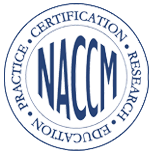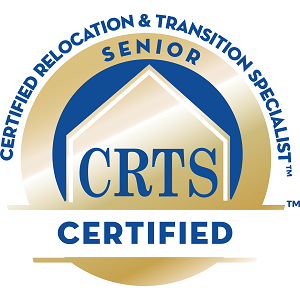Coping with Parkinson’s Disease: Working with a Care Manager
Parkinson’s Disease is a degenerative neurological disorder that affects movement, coordination, and balance. It can cause problems with walking, speaking, and other everyday activities. While the physical symptoms of Parkinson’s disease can be challenging and overwhelming, the emotional toll it takes on those directly affected and their loved ones can be just as significant.
Managing Parkinson’s disease requires a team effort, and one of the most valuable members of that team is the care manager. This blog post will explore the role of a care manager in supporting individuals with Parkinson’s disease and their families. By understanding the importance of care management in Parkinson’s disease, we hope to provide valuable insights and resources to help those affected by this condition cope and thrive.
How to Cope With Parkinson’s Disease
Living with Parkinson’s disease can be a challenging and overwhelming experience for both the individual diagnosed with the condition and their loved ones and caregivers. It often requires the medical management, caregiving, and emotional support that loved ones may feel ill-equipped to provide. Thankfully, there are effective coping methods for both the affected individual and their loved ones.
As the Person Affected by Parkinson’s
As the person directly affected by Parkinson’s disease, coping with the diagnosis and managing the disease can be a significant challenge. However, there are many strategies and resources available that can help individuals with Parkinson’s disease improve their quality of life and maintain their independence. For instance:
- Physical Therapy: Exercise is an integral part of managing the symptoms of Parkinson’s Disease. A physical therapist can help those affected develop an appropriate exercise plan tailored to their needs and abilities.
- Support system: A support network can provide emotional support, practical assistance, and a sense of belonging that can help combat feelings of isolation and depression.
- Healthy diet: Eating nutritious meals with plenty of fruits and vegetables helps maintain energy levels and may reduce rates of decline in motor skills.
- Stress relief: Stress can aggravate symptoms of Parkinson’s, so It’s vital to reduce stress levels where possible. Stress relief techniques such as deep breathing, progressive relaxation, and guided imagery may help.
As a Loved One of Someone Affected by Parkinson’s
The role of a loved one can often be the most critical in providing care and support to someone with Parkinson’s. While it can be daunting, there are many actions family and friends can take to help, including:
- Education: Gaining knowledge about the disease is key to better understanding it, which will equip family members to provide care and support for the person affected.
- Support groups: Connecting with other family members of people with Parkinson’s in a supportive environment can be beneficial. Support groups provide information on treatments, medication, and tips for symptom management.
- Companionship: Providing companionship can help reduce feelings of isolation and loneliness. Regular visits to the doctor, going out for meals, or attending activities together can all be effective.
As the Caregiver of Someone Affected by Parkinson’s
Caregivers of someone with Parkinson’s may be responsible for providing medical, emotional, and practical support. Here are a few ways caregivers can cope with the diagnosis and help the senior to manage the disease effectively:
- Emotional support: Caregivers can help the affected senior stay positive and motivated, reminding them of their progress and encouraging them to continue working towards their goals.
- Medication management: Caregivers can also help them remember to take medications as prescribed and ensure they are refilled on time.
- Daily living: Caregivers can also assist with daily living activities, such as bathing, dressing, grooming, and transportation.
The Role of Care Managers in Coping with Parkinson’s Disease
Caring for someone with Parkinson’s can be an overwhelming experience. Working with an aged care manager is one way of ensuring the best possible care is provided to the person affected by the disease.
Care managers are professionals who specialize in helping individuals and families living with chronic or long-term illnesses like Parkinson’s Disease. They can help coordinate medical appointments, connect patients to resources, and provide additional support as needed. Working with a care manager can help alleviate some of the stress associated with managing the symptoms of Parkinson’s, as well as provide guidance on how to best support the person affected by the disease.
The role of care managers in managing Parkinson’s Disease is multifaceted. They can assess the person’s condition, help develop a care plan, coordinate access to specialized services and treatments, review financial options, and provide emotional support. Care managers may help to ease the burden of care by connecting the person affected with home health services, respite care programs, and support groups. A care manager may also provide guidance and advice to family members of someone affected by Parkinson’s on how to best support their loved one.
The Benefits of Working with a Care Manager
Working with a care manager can provide numerous benefits to both the person with Parkinson’s and their family members. Some of the benefits include the following:
- Improved communication: Care managers can help ensure that all healthcare providers are up to date on the patient’s condition, treatment plan, and medication regimen. This can help prevent errors, reduce hospitalizations, and improve the overall quality of care.
- Education: They can help navigatethe healthcare system and provide resources to help the patient and their family understand the disease, treatment options, and available support services.
- Access to specialized services: Care managers can also help coordinate access to specialized medical treatments, support groups, and recreational activities.
- Medical management: They can help coordinate appointments and services and assist with medication management and adherence.
- Emotional support: And finally, a care manager can provide emotional support to the person affected, as well as to family members and caregivers.
Finding the Right Care Manager for Your Needs
Finding the right care manager is a vital step in managing Parkinson’s disease. When choosing a care manager, it’s important to look for someone experienced in working with Parkinson’s patients and who has a strong understanding of the disease and its treatment options. It’s also important to consider factors such as their communication skills, availability, and approach to care.
At Reflections Management and Care, we offer experienced care management services for individuals and families affected by Parkinson’s disease. Our team of dedicated professionals has a strong understanding of the unique challenges faced by Parkinson’s patients and their loved ones.
Find out more about Reflections Management and Care services by getting in touch with our team today.














